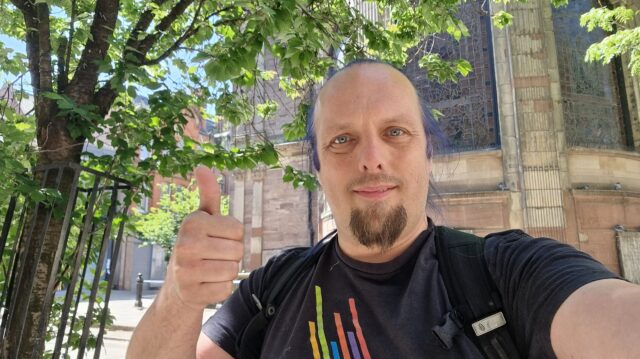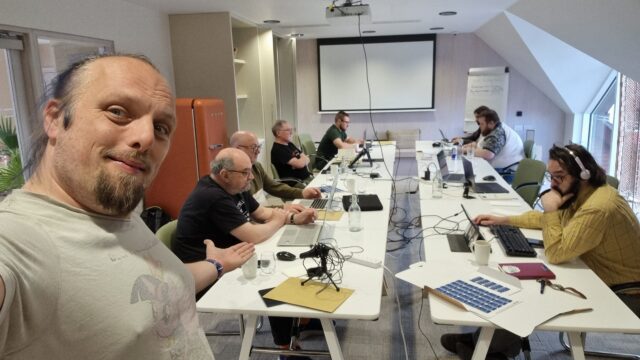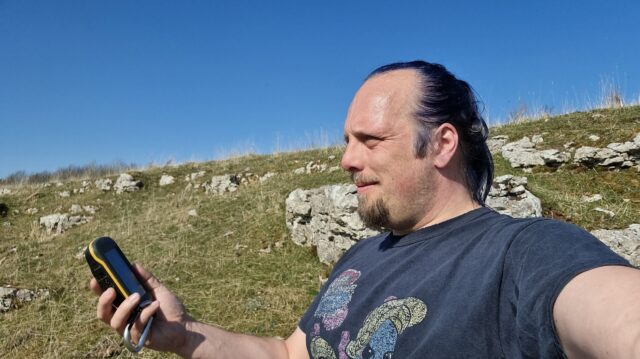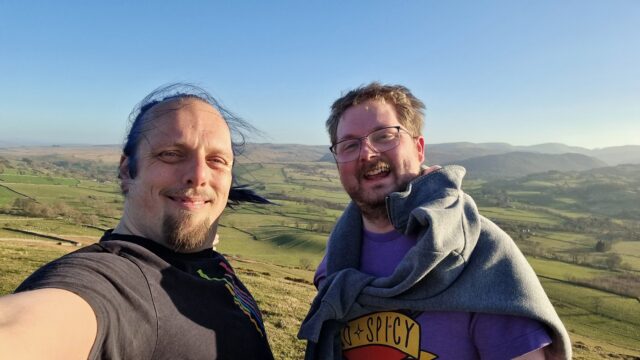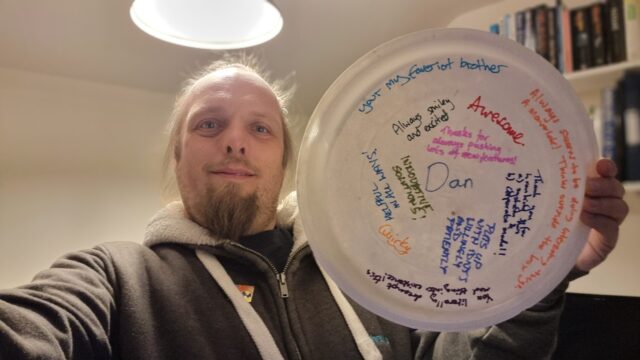Fellow geek, Nightline veteran, and general volunteering hero James Buller wrote a wonderful retrospective on his experience with Surrey Nightline, National Nightline, and the Nightline Association over most of the last three decades:
…
- In 1997 I left a note in the Surrey Nightline pigeon-hole to volunteer and eventually become the Coordinator
- In 1998 I emailed the leaders of National Nightline with a plea for support.
- In 2000 I launched the first National Nightline website and email list
- In 2003 I added the bulletin board online forum
- In 2006 I led governance reform and the registration project that led to the Nightline Association charity
- In 2007 I set up Google Apps for the recently established nightline.ac.uk domain
- In 2008 We sent news via an email broadcast system for the first time
- In 2025 All the user accounts and the charity were shut down.
So here’s my last post on volunteering with the confidential mental health helplines run ‘by students for students’ at universities, then the overarching association body.
…
I began volunteering with Aberystwyth Nightline in 1999, and I remember the 2000 launch of the National Nightline mailing list and website. It felt like a moment of coalescence and unity. We Nightline volunteers at the turn of the millennium were young, and tech-savvy, and in that window between the gradual decline of Usenet and the 2004-onwards explosion in centralised social networking, mailing lists and forums were The Hotness.
Nightlines (and Nightliners) disagreed with one another on almost everything, but the Internet-based connectivity that James put into place for National Nightline was enormously impactful. It made Nightline feel bigger than it had been before: it was an accessible and persistent reminder that you were part of a wider movement. It facilitated year-round discussions that might previously have been seen only at annual conferences. It brought communities together.
(Individuals too: when my friends Kit and Fiona met and got together back in 2003 (and, later, married), it probably wouldn’t have happened without the National Nightline forum.)
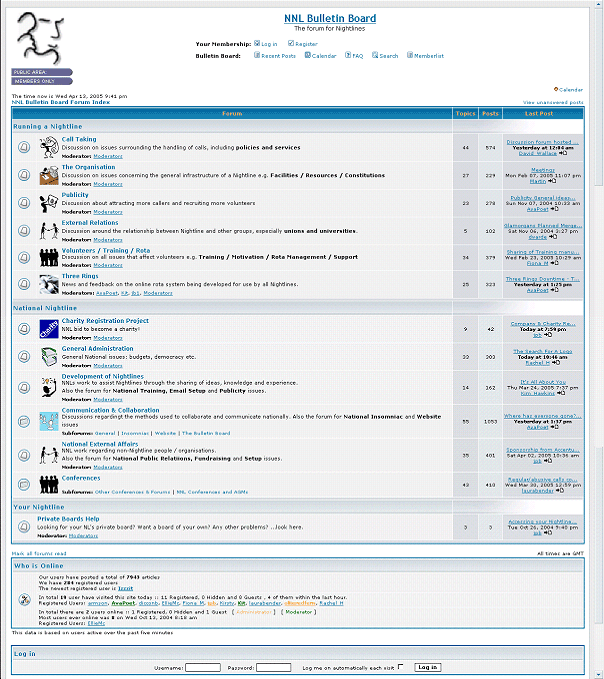
But while I praise James’ work in community-building and technology provision, his experience with Nightlines doesn’t stop there: he was an important force in the establishment of the Nightline Association, the registered charity that took over National Nightline’s work and promised to advance it even further with moves towards accreditation and representation.
As his story continues, James talks about one of his final roles for the Association: spreading the word about the party to “see it off”. Sadly, the Nightline Association folded last month, leaving a gap that today’s Nightlines, I fear, will struggle to fill, but this was at least the excuse for one last get-together (actually, three, but owing to schedule conflicts I was only able to travel up to the one in Manchester):
…
I had done a lot of the leg work to track down and invite former volunteers to the farewell celebrations. I’d gotten a real buzz from it, which despite a lot of other volunteering I’ve not felt since I was immersed in the Nightline world in the 2000’s. I felt all warm and fuzzy with nostalgia for the culture, comradeship and perhaps dolefully sense of youth too!
I was delighted that so many people answered the call (should have expected nothing less of great Nightliners!). Their reminiscing felt like a wave of love for the movement we’d all been a part of and had consumed such a huge part of our lives for so long. It clearly left an indelible mark on us all and has positively affected so many others through us.
…
Many people played their part in the story of the Nightline Association.
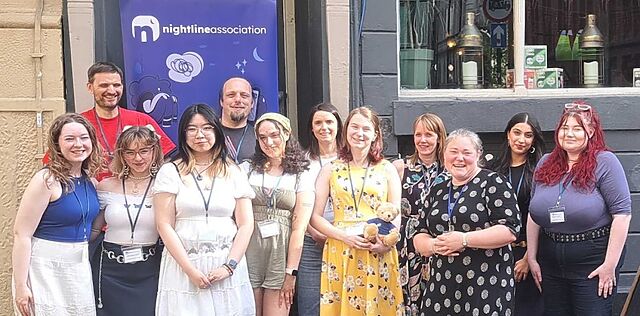
My part in the story has mostly involved Three Rings (which this year adopted some of the Association’s tech infrastructure to ensure that it survives the charity’s unfortunate demise). But James, I’ve long felt, undermines his own staggering impact.
Volunteering in charity technical work is a force multiplier: instead of working on the front lines, you get to facilitate many times your individual impact for the people who do! Volunteering with Three Rings for the last 23 years has helped me experience that, and James’ experience of this kind of volunteering goes even further than mine. And yet he feels his impact most-strongly in a close and interpersonal story that’s humbling and beautiful:
…
I was recently asked by a researcher, ‘What is the best thing you have done as a volunteer in terms of impact?’. I was proud to reply that I’d been told someone had not killed themselves because of a call with me at Surrey Nightline.…
I’d recommend going and reading the full post by James, right up to the final inspiring words.
(Incidentally: if you’re looking for a volunteering opportunity that continues to help Nightlines, in the absence of the Nightline Association, Three Rings can make use of you…)

